The Future of the Creator Economy Report 2023
Trends in earnings, monetization, music, and AI in the creator economy.
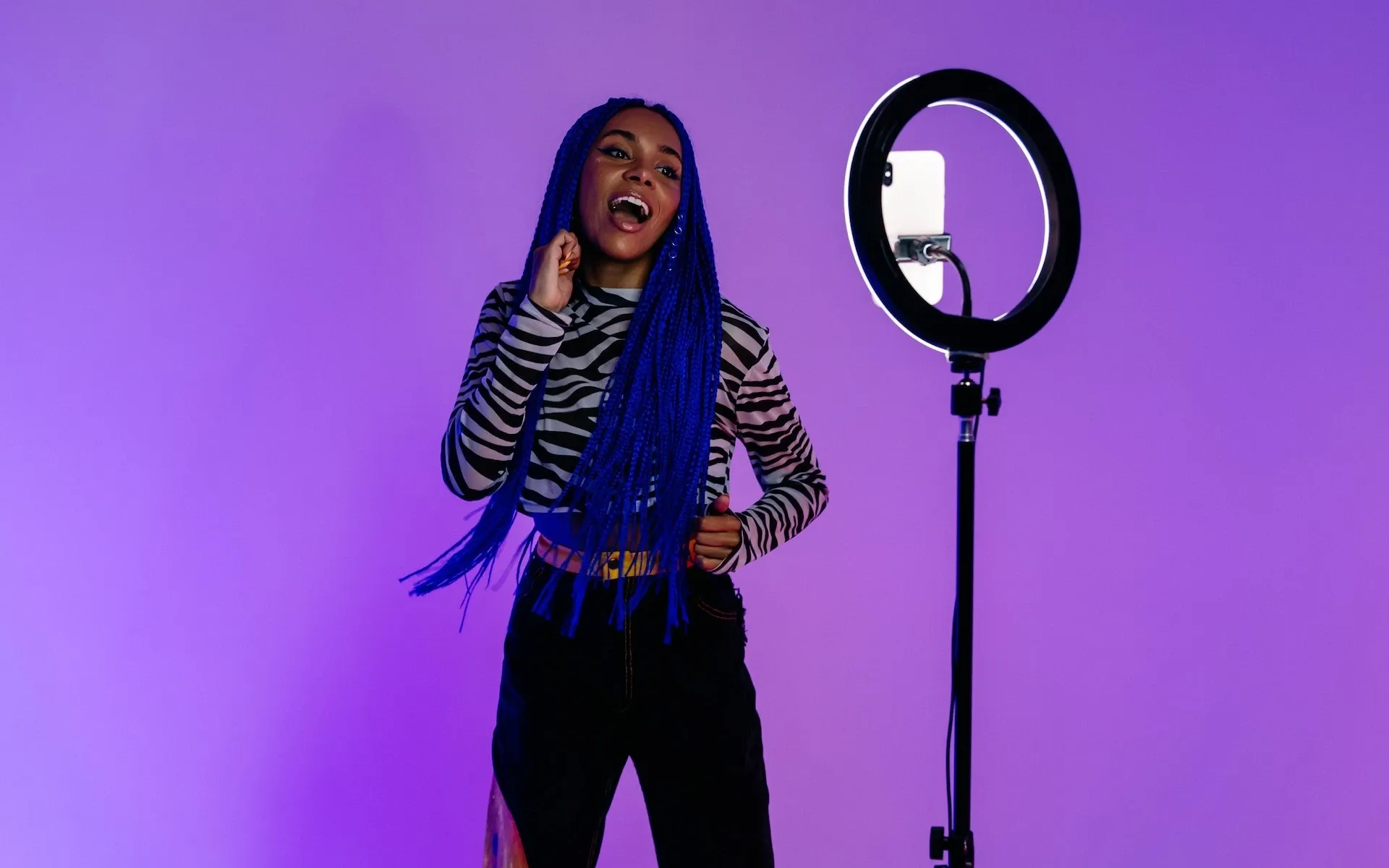
The content creation scene is in a state of constant flux, with fresh monetization prospects, cutting-edge technology, and evolving consumer behavior driving significant changes. This research report takes a closer look at the present state of content creation, the hurdles creators encounter, and their expectations for the future, based on a survey of 1,500 content creators who are currently monetizing their work.
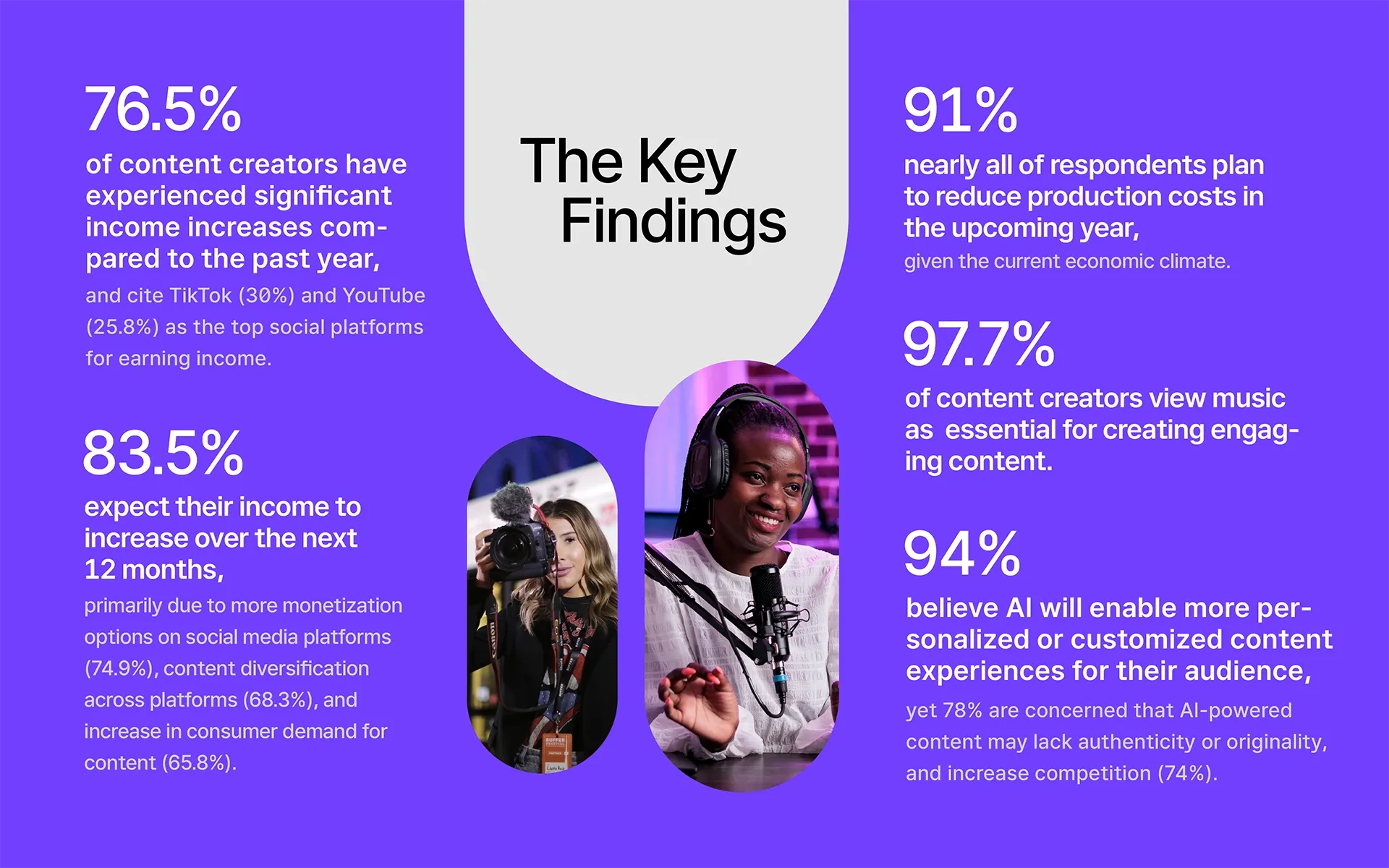
Majority of creators experienced a significant increase in income over the past year and expect more growth in 2023
The past few years have seen a surge in the number of individuals becoming content creators. Yet despite the industry’s rapid expansion, monetization is still relatively new: 42.6% of content creators began to earn money from their creations just in the last year, and 79.6% within the previous two years. The monetization of content has become a primary or supplementary income source for many creators, resulting in a median annual income of $20,000.
Additionally, a large majority (76.5%) of creators have experienced a significant increase in income compared to the previous 12 months, indicating potential for further growth. Conversely, only 23% of content creators have seen a decrease in income or no change at all.
- 50.7% of content creators rely on content creation as their primary source of income, while 49.3% consider it supplementary.
- Of those who’ve seen their income increase, the majority attribute the change to more monetization options on social media platforms (77.2%), diversifying their content across more social platforms (66.8%), and an increase in consumer demand for content (65.8%).
- Among those who experienced a decline in income, 65% attribute this to increased competition and 48% to changes in consumer content consumption habits.
- 83.5% of content creators believe their income will increase in the next 12 months, while only 2.3% believe their income will decrease. Like those whose income grew over the past year, creators who expect their income to grow over the next 12 months predict this will be due to more monetization options on social media platforms (74.9%), diversification across platforms (68.3%), and increased consumer demand for content (65.8%).
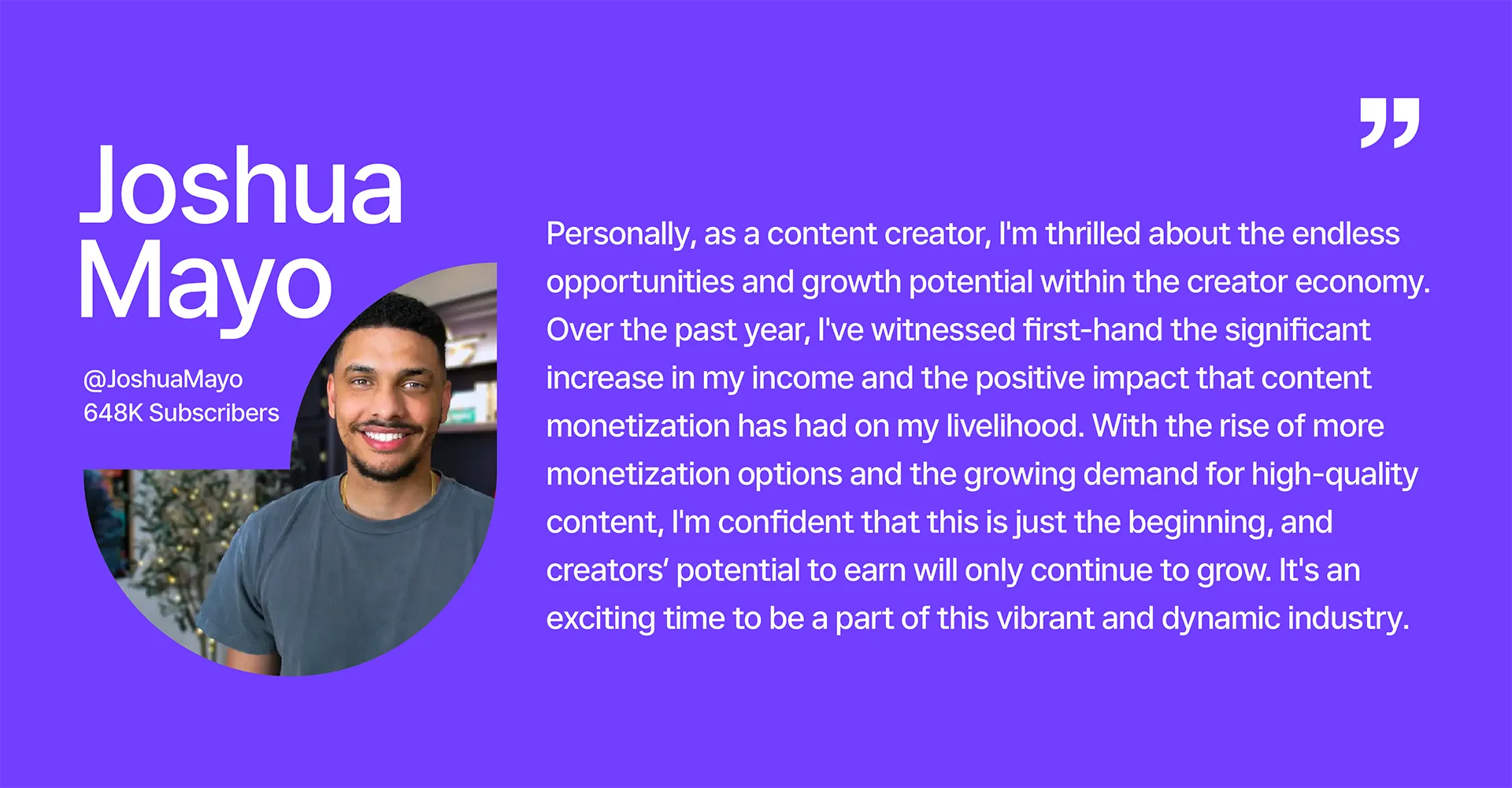
When it comes to methods of monetization, the majority of content creators are diversifying their income streams, with advertising revenue and brand partnerships being the most prevalent sources.
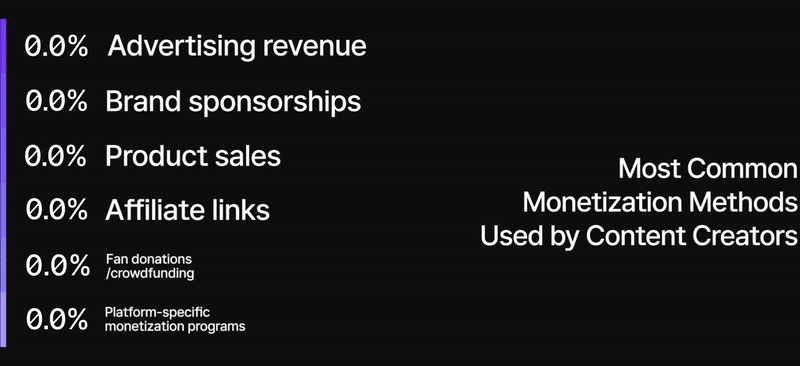
As creators diversify their content across multiple social media platforms, understanding which ones generate the most income and offer the best monetization options is essential. On average, content creators distribute their work on four platforms, with TikTok, YouTube, and Facebook emerging as the highest-earning platforms.
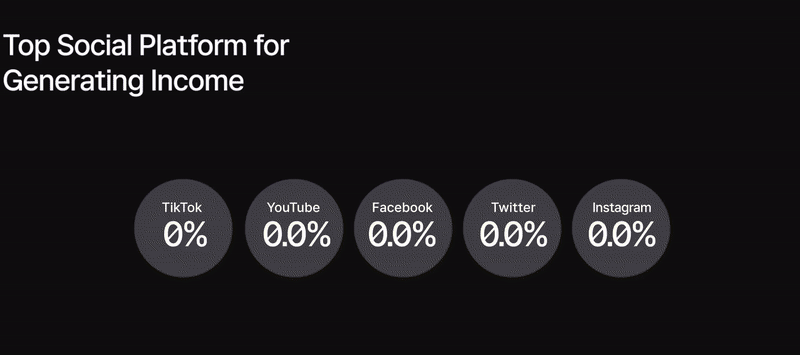
Higher earners tend to cite YouTube as their primary channel for generating income from their content creation efforts, though TikTok proves to be more consistent across creators at various income levels. The top three platforms where content creators are most satisfied with the fairness and transparency of monetization policies are Facebook, Instagram, and TikTok.
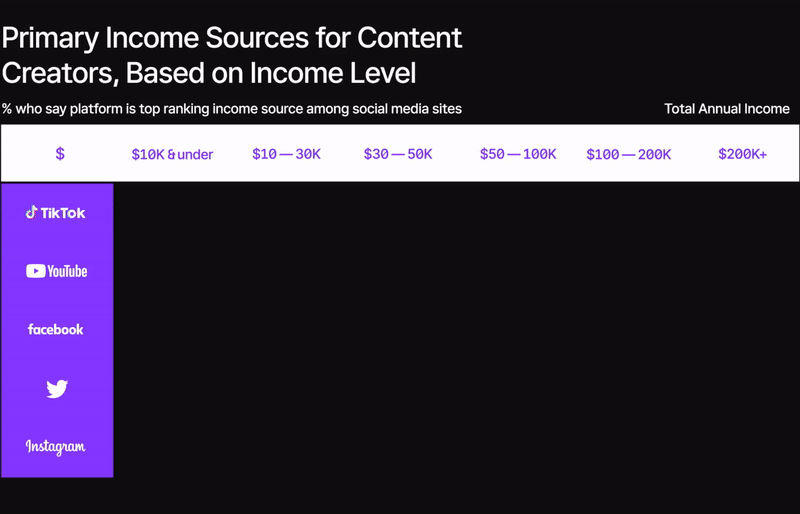
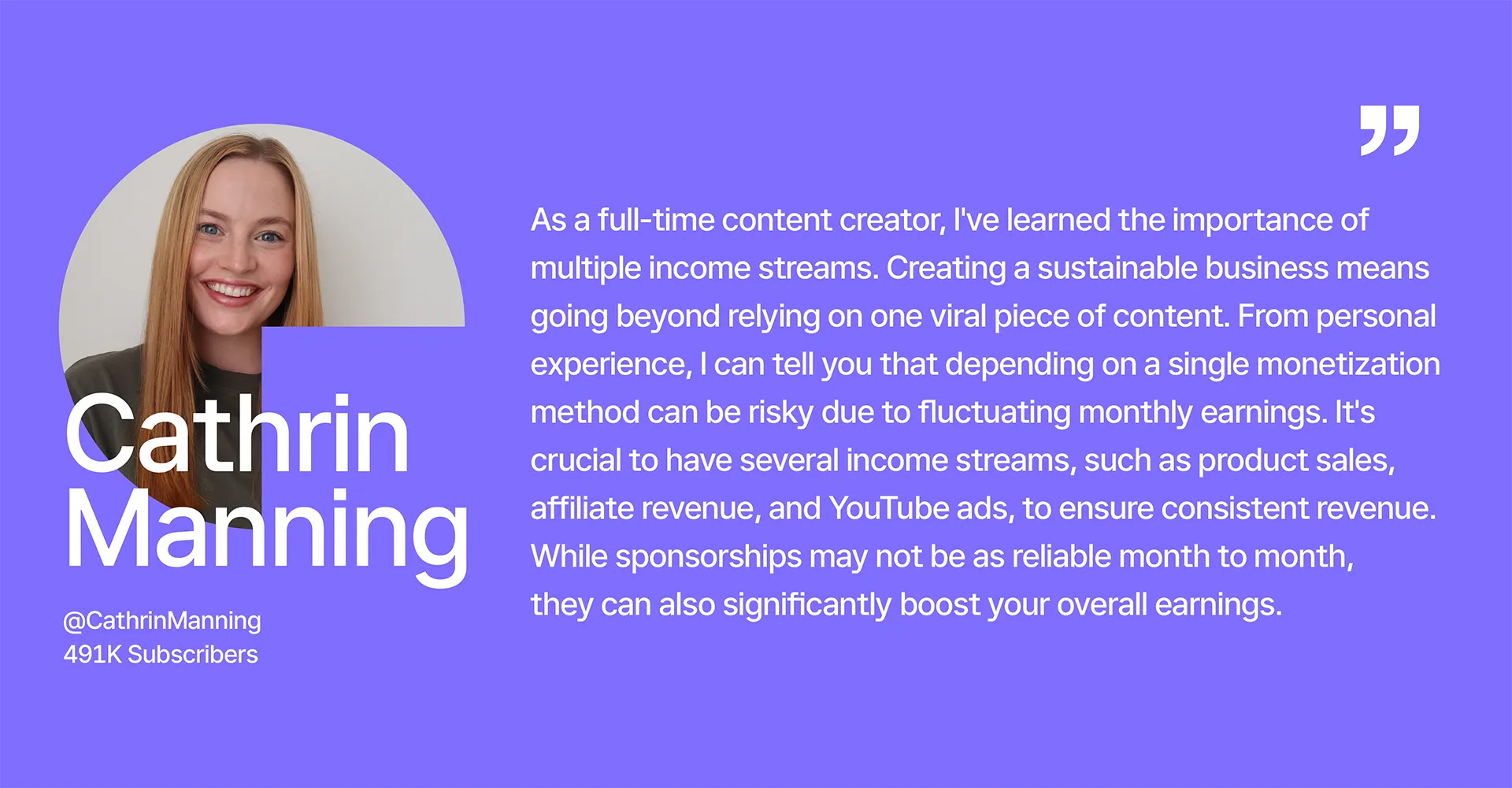
High content production costs chip away at creator earnings
Creating high-quality content often requires investment in tools, software, and equipment. The report shows that content creators spend an average of 13% of their annual content creation income on production-related expenses, with equipment, software, and editing tools being the largest cost categories.
Despite feeling confident about future earnings, nearly all (91%) of content creators plan to reduce production costs in the coming year. It is crucial for creators to find cost-effective solutions and tools that can help maintain the quality of their content without compromising their earnings.
- Content creators use an average of 4.5 tools for content production and spend $2,500 annually, or 13% of their content creation income, on production.
- Nearly all of the respondents planned to reduce production costs in the upcoming year given the current economic climate, primarily cutting costs related to talent (43.2%), location rentals (37.8%), and props and costumes (35.3%).
- Tools creators were least likely to cut back on included software and editing tools, support staff, equipment, and music selection.
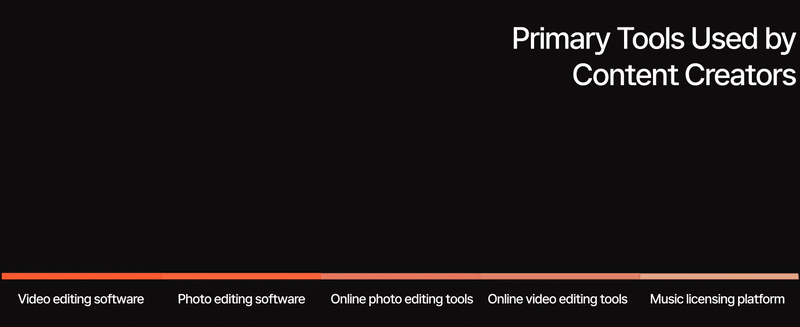
Music plays a key role in content performance and monetization, yet copyright takedowns are common
A significant 97.7% of content creators view music as essential for creating engaging content. They spend an average of $53.36 per content piece on music selection. However, 64.7% admit to compromising on music choices due to budget constraints, and 61.3% have experienced content removal, muting, or demonetization due to copyright issues.
When it comes to acquiring music for content production, content creators rely heavily on royalty-free and/or paid music licensing websites/services, followed by social-platform offered music.
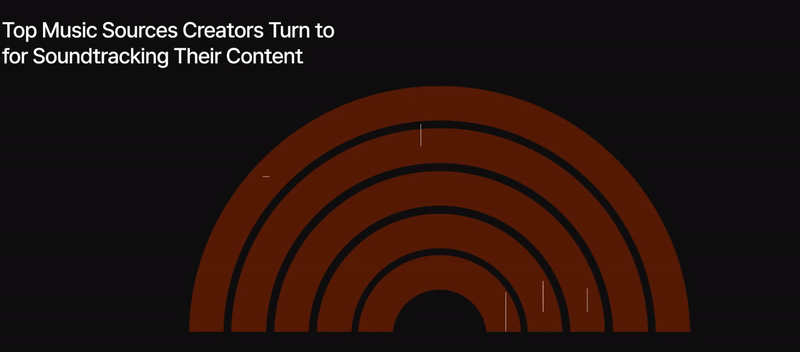
Creators are looking to artificial intelligence to help solve production challenges
AI is becoming an increasingly important part of the content creation process and may offer solutions to creators’ production challenges. Many creators are adopting AI-powered tools to automate repetitive tasks, personalize content experiences, and streamline their workflow.
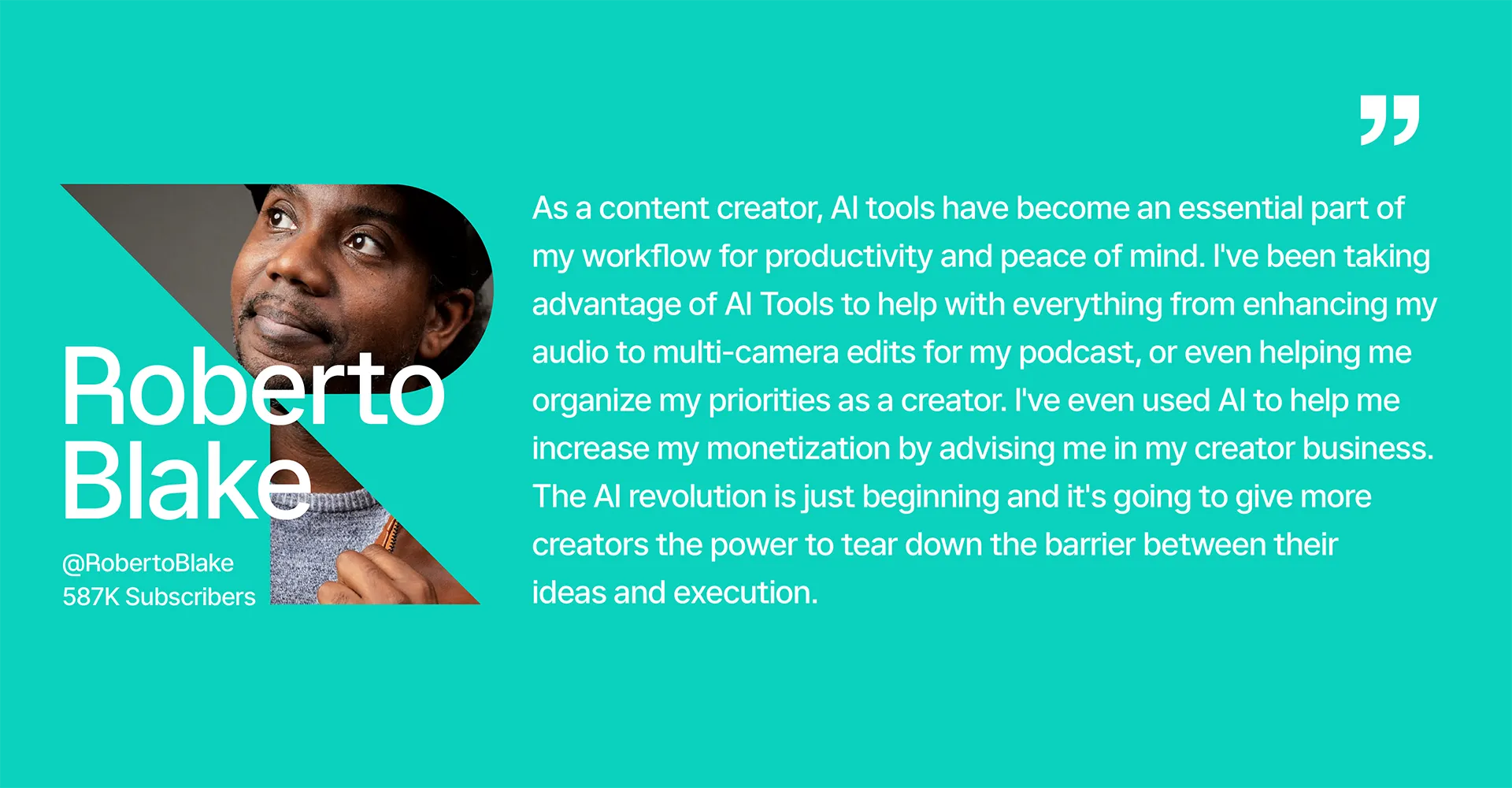
However, concerns remain about the authenticity and originality of AI-generated content, as well as the potential for increased competition due to AI's widespread adoption. Despite these concerns, the adoption of AI tools is likely to continue growing as content creators recognize the potential benefits, such as improved efficiency and the ability to focus on more creative aspects of their work.
Nearly all (93%) of content creators are currently using AI-powered tools or applications in their content creation process, with the most popular being image or video recognition software, automated transcription tools, chatbots or virtual assistants, and personalized recommendation engines.
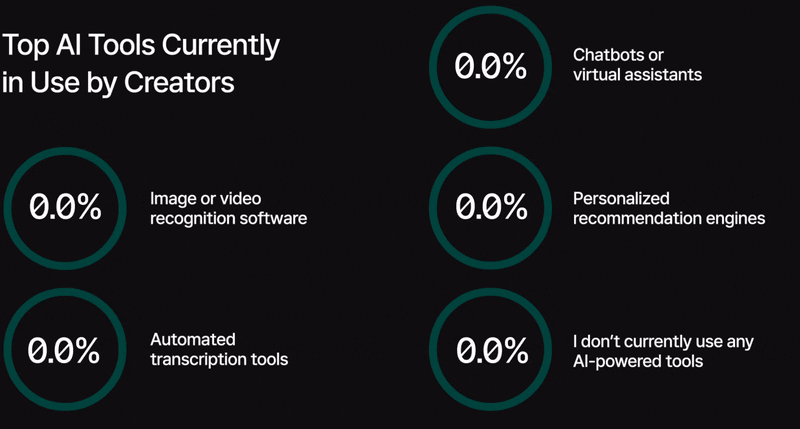
97% of content creators believe AI will help them automate repetitive or time-consuming tasks, while 94% believe AI will enable more personalized or customized content experiences for their audience.
However, 78% are concerned that AI-powered content may lack authenticity or originality, and 74% think AI will increase competition, making it more difficult to stand out.
The future of content creation is evolving, with creators embracing various monetization strategies and the use of AI to enhance their content. As social media platforms continue to offer more monetization options, content creators can expect to see further growth and opportunities in the industry.
By understanding these trends and leveraging the available tools and technologies, creators can adapt to the changing landscape and continue to thrive in the competitive world of content creation.
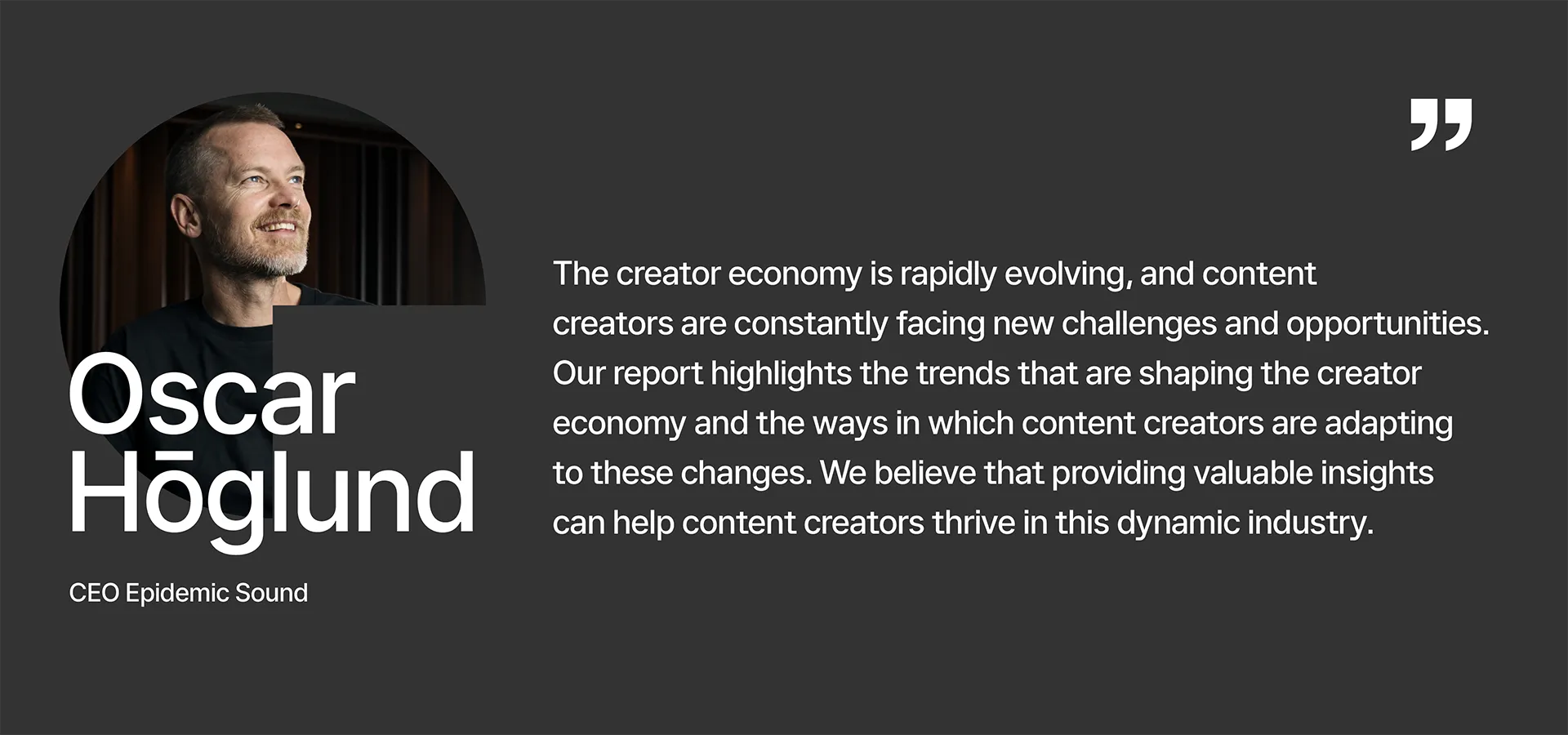
METHODOLOGY:


